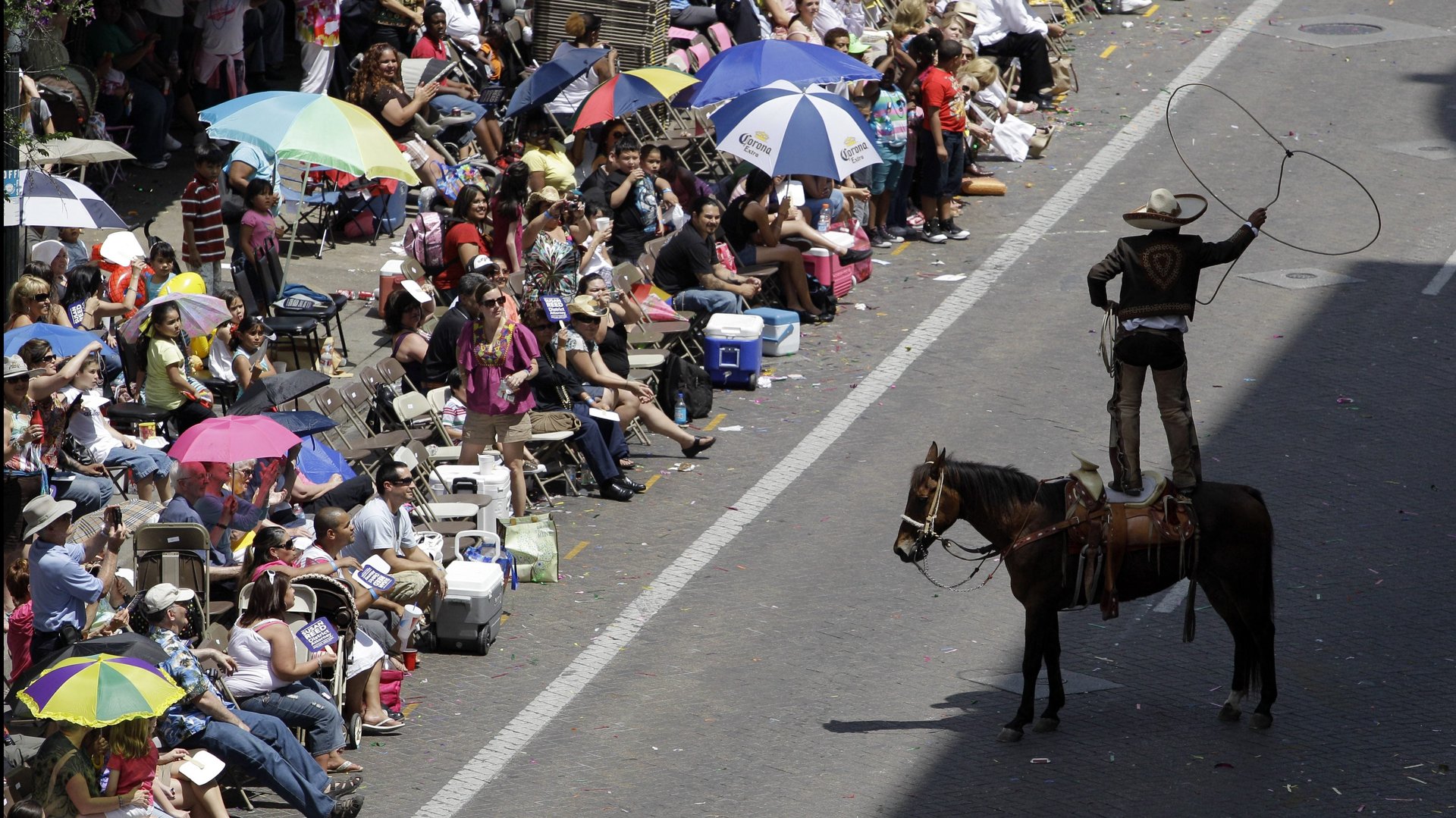Trump’s fear of Hispanic voter fraud is deeply, historically flawed
Despite winning the 2016 presidential election, Donald Trump last year launched an investigation into what he claims was “massive voting fraud.” Some of it, in his view, was committed by undocumented immigrants.


Despite winning the 2016 presidential election, Donald Trump last year launched an investigation into what he claims was “massive voting fraud.” Some of it, in his view, was committed by undocumented immigrants.
So, he created the Presidential Advisory Commission on Election Integrity, led by vocal immigration hardliner Kris Kobach. This month, Trump dissolved the controversial body—but not before it had started collecting voter rolls from states. By then, according to a Washington Post report, one commission advisor had already asked that all registered Texas voters with a Spanish surname be flagged.
Kobach told the newspaper he didn’t know why the request was made.
Perhaps that’s because the suggestion that Hispanics voted illegally makes little sense. Voter fraud, by undocumented immigrants or otherwise, barely exists in the US. And people with Spanish surnames have been living in what is now Texas since it was a colony of Spain.
The colonial government, based in Mexico City, started encouraging colonists to settle in today’s Texas in the early 1700s, while the French moved into what is now Louisiana. They started communities such as San Antonio—in fact, many cities and towns throughout the state still bear Spanish names.
The colonists stayed in Texas through the US’s war for independence, and then Mexico’s. Some of them fought in Texas’s own effort to separate from Mexico. When the Texas Republic became a state in 1845, these tejanos, as they are known, became part of the US.
A few years later, more Mexicans were effectively crossed by the border, when the US absorbed another strip of territory between the two countries. That was in 1848, several decades before Trump’s grandfather would arrive to the US via Germany in 1885, and well before his Scottish mother, in 1929.
The descendants of those colonists have been American citizens for generations, and thus have the right to vote. So do many others of Hispanic descent who arrived later and became Americans. They include people whose last names are Aguilar and Zapata, and hundreds of other Spanish names in between.
In fact, Texas’s Secretary of State–whose surname is Pablos—only tracks Hispanic names out of concern that Hispanic voters don’t vote enough.
To get voters to the polls, the US Department of Justice requires Texas to send Spanish-language voting materials to residents with Spanish last names, under the Voting Rights Act of 1965. According to its records, there are 3.6 million registered voters with a Hispanic surname out of 15.1 million voters in the state.
Another 1.2 million or so Hispanic Texans are eligible to vote, but have not registered, based on Pew Research Center figures. If anything, the federal government should focus on getting more Hispanic voters to vote.